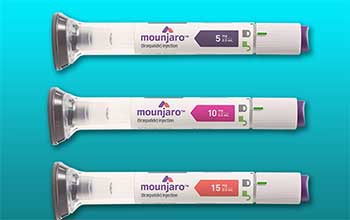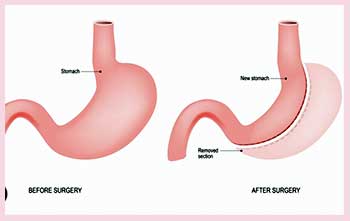Obesity affects over 40% of American adults, substantially raising risks for numerous health conditions like type 2 diabetes, heart disease, and stroke. With rising obesity rates, many people turn to medical interventions for lasting weight loss and health improvements when diet and lifestyle changes alone have failed.
Two of the most talked-about new options are Mounjaro medication and gastric sleeve surgery. But how do you decide which one is right for you?
This comprehensive guide examines the key factors to weigh when considering Mounjaro versus gastric sleeve. We’ll compare effectiveness, safety, cost, invasiveness, side effects, and more between these two popular weight loss aids. Read on for the main pros and cons of each method to help inform your decision.
Brief Comparison Table
| Factor | Mounjaro | Gastric Sleeve |
| Effectiveness | 12-25+ lb avg weight loss | 60-80 lb avg weight loss |
| Side Effects | GI issues, improve over time | Severe pain, lifelong deficiencies possible |
| Safety Risk | Very low | Up to 0.5% mortality rate |
| Cost | $974+ monthly without insurance | $12,500-$25,000 average |
| Invasiveness | Weekly self-injection | Major surgery |
| Convenience | Indefinite refillable Rx | Mandatory permanent diet changes |
| Added Health Benefits | ↓ cardiovascular risk, ↓ blood sugar | Resolves some obesity-driven diseases |
How Mounjaro And Gastric Sleeve Aid Weight Loss
To understand the differences between these options, you first need to know how they work.
Mounjaro is a new class of injectable medication used for treating type 2 diabetes and chronic weight management. It mimics a hormone called GLP-1, which targets areas of your brain that regulate appetite and food intake. By activating your body’s GLP-1 receptors, Mounjaro curbs feelings of hunger, helps you feel fuller sooner while eating, and ultimately reduces calorie consumption.

This calorie deficit produces weight loss over weeks and months of treatment. Mounjaro comes in an easy-to-use, prefilled injection pen for weekly self-administration.
Gastric sleeve surgery takes a mechanical approach to limiting food intake and absorption. During this procedure, a bariatric surgeon removes approximately 75% of the stomach by stapling, leaving a smaller sleeve-shaped stomach. This drastically reduced stomach capacity promotes feelings of fullness with smaller meal portions.
The surgery also alters gut hormones that impact hunger, satiety, and blood sugar control. Rather than a medication requiring perpetual refills, this surgery aims for long-term results from a single procedure.
Now that you understand their general mechanisms for weight loss, let’s delve into how Mounjaro and gastric sleeve compare across a range of key factors:
Effectiveness
- Mounjaro
- Average weight loss of 12-25+ pounds over 20-68 weeks across clinical trials
- 67-84% of participants losing ≥5% body weight
- 31-37% of participants losing ≥15% body weight
- Gastric Sleeve
- Average weight loss around 60-80 pounds (or 50-70% excess body weight) in 12-18 months
- Over 50% maintaining >50% of weight loss long-term
For both options, results depend heavily on the individual and their adherence to healthy lifestyle changes. But gastric sleeve produces greater average weight loss overall in a shorter timespan.
Side Effects
- Mounjaro
- Very common: nausea, diarrhea, vomiting, constipation, abdominal pain
- Often improve within days to weeks
- Risk of gallbladder problems
- Gastric Sleeve
- Short-term: pain, nausea, vomiting, acid reflux, diarrhea, infection
- Long-term: acid reflux, hypoglycemia, malnutrition, bowel obstruction
- Requires lifelong supplements and medical monitoring
- Irreversible digestive changes

While adjustable with dose titration, Mounjaro frequently causes temporary GI problems. Gastric sleeve problems can prove more severe and lasting from stomach obstruction or lifelong deficiencies without strict adherence to dietary guidelines.
Safety And Risk Profile
- Mounjaro
- Generally well-tolerated
- Rare cases of pancreatitis and medullary thyroid tumors
- Avoid if personal/family history of these or multiple endocrine neoplasia syndrome
- Not recommended currently with prior bariatric surgery due to unknown interactions
- Gastric Sleeve
- 0.5% risk of mortality from complications
- 5% readmission rates within 30 days post-surgery
- Requires experienced bariatric surgical team
- Not generally recommended for high-risk surgical patients
When used appropriately, Mounjaro offers a minimal risk intervention under a prescribing doctor’s supervision. Gastric sleeve poses risks inherent to major abdominal surgery.
Also Read: Differences Between Regoxidine And Rogaine.
Cost And Coverage
- Mounjaro
- $974+ monthly without insurance
- Many insurers now cover with prior authorization
- Co-pay assistance programs available for eligible patients
- Gastric Sleeve
- Approximately $12,500 to $25,000 out-of-pocket on average
- Often covered by major medical insurance with weight requirements
- Significant non-reimbursable costs (time off work, travel, etc.)
Mounjaro proves more affordable than gastric sleeve for those lacking robust medical insurance. But with coverage, gastric sleeve provides longer-term value from a single costly procedure.
Invasiveness
- Mounjaro: Self-administered injection once weekly
- Gastric sleeve: Major surgery requiring multi-day hospitalization and weeks recovery
There’s no contest here. Mounjaro is far less invasive than a major operation like gastric sleeve.
Convenience And Compliance
- Mounjaro
- Indefinite weekly injections
- Requires prescription refills
- Self-administration supports compliance
- No major lifestyle changes
- Gastric Sleeve
- One-time surgical procedure
- Mandates lifelong dietary changes
- Requires high motivation and discipline
- Vomiting or non-compliance increases complications
Also watch the video of Mounjaro!
Mounjaro offers effortless adherence with an injection pen but demands indefinite use for sustained results. Gastric sleeve only requires a single procedure but strict dietary compliance proves essential to avoid complications.
Additional Health Benefits
- Mounjaro: Clinically proven to improve markers of cardiovascular health and glycemic control for type 2 diabetics
- Gastric Sleeve: Shown to resolve or improve obesity-related health conditions like diabetes, high blood pressure, sleep apnea, joint problems, and others
Both Mounjaro and gastric sleeve provide meaningful ancillary health benefits beyond just supporting weight loss. For some patients, the potential to resolve comorbid conditions without lifelong medication could make gastric sleeve more appealing.
Key Takeaways: Mounjaro Vs. Gastric Sleeve
- Effectiveness: Gastric sleeve typically achieves greater total weight loss overall
- Side Effects: Mounjaro GI issues often resolve within weeks, but gastric sleeve problems prove more severe
- Safety: Mounjaro minimal risks, gastric sleeve major surgery risks including mortality
- Cost: Mounjaro more affordable out-of-pocket, but insurance often covers gastric sleeve
- Invasiveness: Mounjaro by injection, gastric sleeve major operation
- Convenience: Mounjaro easier short-term, gastric sleeve challenging life-long dietary changes
Carefully weighing these key factors allows identifying the better personal fit between convenient short-term medication or maximally invasive yet potent surgery for lasting weight loss. Speak to your doctor to decide if Mounjaro or gastric sleeve better matches your health needs and priorities.
Frequently Asked Questions (FAQ)
No, Mounjaro and gastric sleeve have very different mechanisms of action. Mounjaro is an injectable medication that mimics gut hormones to reduce appetite. Gastric sleeve is an irreversible surgical procedure that physically limits food intake by removing part of the stomach.
Ozempic is a once-weekly injectable similar to Mounjaro also acting through GLP-1 receptors for appetite and blood sugar control. Gastric sleeve surgery typically achieves greater weight loss overall but carries substantially higher risks as a major operation. Ozempic is less invasive but often loses effectiveness over time.
The Roux-en-Y gastric bypass is considered the current gold standard bariatric surgery, achieving greater average weight loss than gastric sleeve. However, RYGB proves more technically challenging for surgeons and has higher complication rates than sleeve gastrectomy.
While most patients report satisfaction from weight loss outcomes, some do regret getting gastric sleeve surgery. Reasons include experiencing severe long-term complications, being unable to maintain necessary lifestyle changes, requiring additional surgeries, or dealing with consequential nutritional deficiencies. Close medical follow-up proves critical.
Also Read: Is Juluca Better Than Biktarvy?
Conclusion
New medications like Mounjaro offer fresh promise for convenient medical weight management, but time will tell if they match the tested effectiveness of surgeries like gastric sleeve. There is no definitive “best choice”- rather it comes down to carefully weighing the pros and cons presented here against your health history, priorities, risk tolerance, finances, and lifestyle to determine the right fit.
Discuss both options in detail with your bariatric doctor or multidisciplinary weight management team to decide your best path forward.